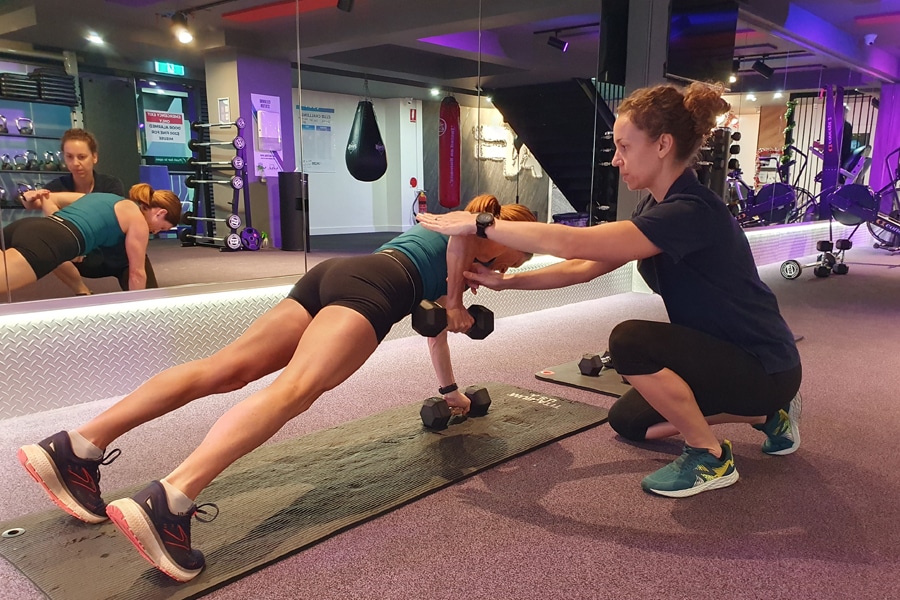Personal trainers are specialists in various forms of training, including strength, conditioning, mobility, and performance enhancement techniques. They offer training, inspiration, accountability, and feedback between sessions. Here are some ways personal trainers help improve your athletic performance:
Customized Training Programs and Support
During the first meeting, personal trainers test for mobility, balance, and athletic ability. They create training plans that improve your performance in each area. For overall development, programs are usually supplemented by other training modes such as plyometrics, resistance, and functional isometrics. Trainers change intensity variables, such as volume, load, and rest periods, to enhance athletic performance.
Form Correction and Technique Refinement
A personal trainer offers real-time responses to correct body posture, foot placement, and hip alignment. Trainers teach appropriate breathing patterns to improve performance during heavy lifting or explosive movements. They may utilize video analysis tools to review technique and look for areas for improvement.
Performance Assessment and Benchmarking
General fitness assessments allow trainers to evaluate speed, agility, and sport skills such as height clearance for vertical jumps. Trainers define your baseline of performance through timed sprints or maximum repetition tests. They track progress via quantifiable markers, such as force production, movement quality, or work capacity. Trainers may use data tracking systems such as spreadsheets, apps, or journals to record performance benchmarks.
Sport-Specific Conditioning and Strength Training
Trainers help boost your sports energy capacity with heavy lifting and interval training. They build conditioning plans with exercises that replicate movements in your sport. Trainers may increase your endurance through tempo runs, shuttle drills, or other high-intensity exercises. Trainers gradually vary conditioning intensity to match the demands of your sports schedule, including pre-season and off-season needs.
Recovery Management
Many trainers intentionally schedule rest weeks to avoid overtraining. They reduce repetition frequency and/or intensity by intervals. During a rest week, workouts may be scheduled based on results in previous training sessions. If you consistently perform well on Tuesdays, scheduled training may remain consistent that day but lessen on low-performance days. Workout intensity can also vary based on parameters such as stress level or quality of sleep.
Some trainers use training modules with built-in intensity variation, including heavy, medium, and light. They can also schedule training to coincide with major competitions. They also teach athletes aspects of recovery modalities, such as foam rolling, contrast therapy, and the right stretching techniques. Trainers track performance to learn the workout patterns that offer the most effective recovery between intense workouts.
Book an Appointment With a Personal Trainer
Personal trainers help athletes perform at a higher level by focusing on building strength, flexibility, and endurance. They develop tailor-made plans and provide consistent feedback to help you reach better fitness levels. Trainers will assess your current fitness level and identify key areas of improvement. Programs may include plyometrics, resistance training, and other exercises. Your trainer will adjust exercise amounts, load, and rest periods for the best results. If you want to improve your posture and technique, trainers can monitor your movement and use video analysis to develop a personalized training regimen. Contact a personal trainer and begin improving your athletic performance today.









